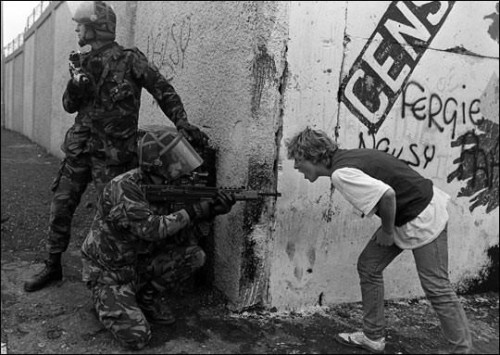Voice, Agency and Responsibility: Victimhood and Transitional Justice in Northern Ireland

Abstract
For many scholars and activists in the post-conflict field, ‘helping victims’ is often invoked as the key rationale for the establishment of truth commissions, reparations, prosecutions, forms of memorialization and other transitional justice mechanisms. Responding to the complexity of the victim-perpetrator axis is part of this process. Yet, post-conflict, defining who is a victim or combatant is inherently complex and often expressly politicized. Monochromatic understandings of ‘innocent’ victims and ‘wicked’ perpetrators are frequently mapped onto contested understandings of who is the ‘blame’ for past violence. This paper will critically explore the construction and meaning of victimhood in post-conflict Northern Ireland. There, discussions on victimhood have been sharply polarized by debates over ‘innocent’ and ‘guilty’ victims and the creation of a ‘hierarchy’ of victimhood. Reflecting competing moral claims to legitimacy and justification for past actions, the power to define who is a victim of the conflict is integrally related to political claims-making and the reproduction of what Benedict Anderson (2006) termed ‘imagined’ political communities. Focusing on the five overlapping themes of (1) Victimhood, Innocence and Blame; (2) Victimhood, Agency and Imagining Legitimacy; (3) Victimhood, Agency and the Mobilization of Empathy; (4) Victimhood, Voice and Discomfort; and (5) Victimhood, Voice and (Political) Responsibility, this paper will assess how competing interpretations of victimhood have mapped onto and influenced discussions on how best to deal with the legacy of the past. Based on sustained qualitative fieldwork with members and representatives of the victims’ sector, ex-prisoner and ex-combatant groups and other relevant stakeholders in Northern Ireland, the conclusions are of relevance to both Northern Ireland and other transitional jurisdictions more broadly.
Biography
Dr Cheryl Lawther is a Lecturer in Criminology in the School of Social Sciences, Education and Social Work. She was previously a post-doctoral research fellow in the School of International Relations, University of St Andrews. From September 2016 - September 2017 Cheryl was seconded to The Senator George J. Mitchell Institute for Global Peace, Security and Justice, Queen's University Belfast as a Senior Research Fellow. Her research interests are in the fields of transitional justice, truth recovery, victims, ex-combatants, reparations, emotions and conflict transformation. Her article “Securing’ the Past: Policing and the Contest over Truth in Northern Ireland’ was awarded the Brian Williams Article Prize by the British Society of Criminology in July 2011. Her monograph Truth, Denial and Transition: Northern Ireland and the Contested Past was published by the Routledge Transitional Justice Series in 2014. Cheryl's most recent book Research Handbook on Transitional Justice (co-edited with L. Moffett and D. Jacobs) was published by the Edward Elgar Research Handbooks in International Law series in 2017.
In addition to her scholarly committments, Cheryl is a member of the executive and Treasure of Northern Ireland/Ireland's leading human rights NGO the Committee on the Administration of Justice and a trustee of the Human Rights Trust.

